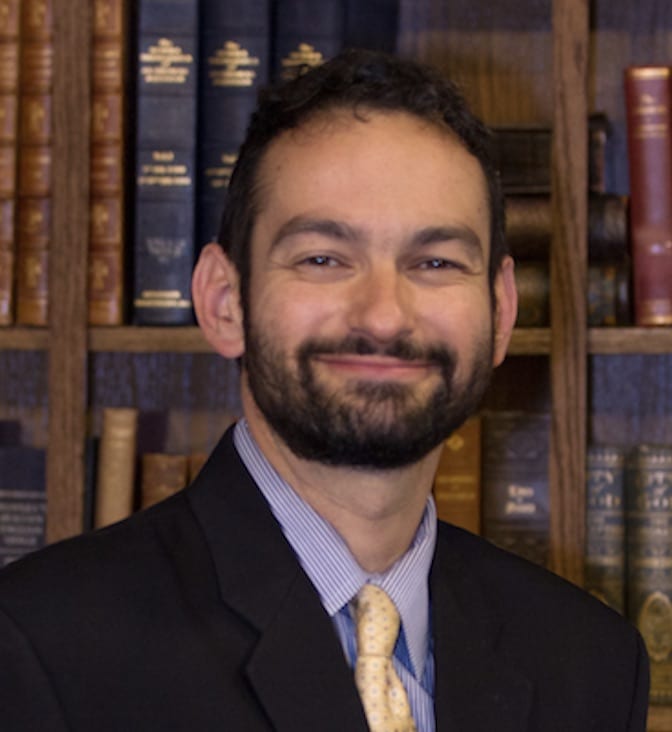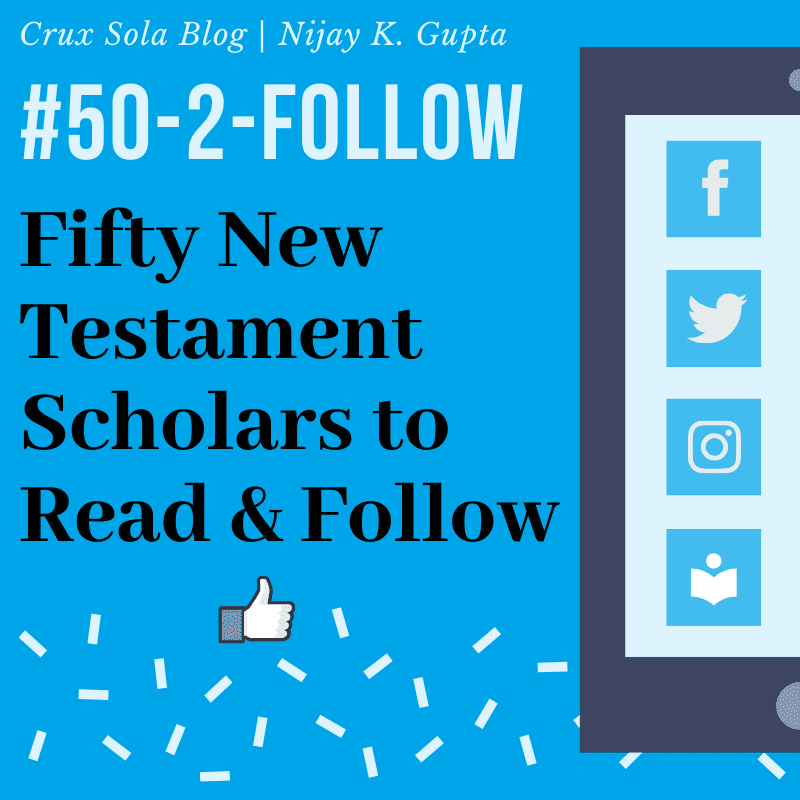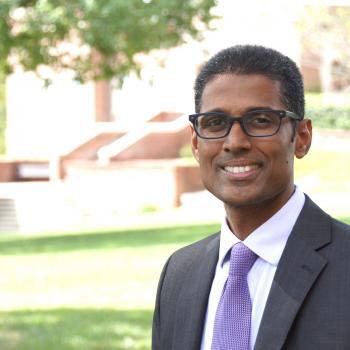This blog series spotlights 50 NT scholars and their research. The goal of this series is to introduce readers to a wider circle of scholarship than they have encountered. The majority of people on this list are early or mid-career NT scholars who are doing great research and writing.
Introducing
Michael Barber
Associate Professor of Scripture and Theology

Explain why you love teaching and/or writing, and why it brings you vocational satisfaction.
To interpret the Bible properly, the exegete must, among other things, carefully investigate its literary, historical, and theological dimensions. I find teaching, researching, and writing about all three of these dimensions of the text to be enriching and utterly fascinating. I thoroughly enjoy wrestling with the questions such study raises. Yet, to be clear, for me the Bible is more than a matter of academic curiosity. As a Catholic, I believe that the biblical texts contain, in the final analysis, the inspired Word of God. This perspective of faith makes the task of biblical interpretation especially enriching. Jesus is more than a historical figure to me. I seek to know him better and, by grace, be more conformed to his image by studying Scripture. In short, contemplating Scripture means contemplating Christ. Nothing could be more fulfilling than that!
Of course, I do not approach the text as a fundamentalist. I fully reject fideistic perspectives and affirm the need for critical analysis. I try to approach the text in a way that seeks to integrate faith and reason. Indeed, I have found profound truth in Paul’s teaching that believers are called to be “transformed through the renewal of your mind” (Rom 12:2). Authentic Christian transformation, it seems to me, entails more than happy thoughts and good feelings; it must involve the courage to “rethink” reality. For me, that is what my job as a professor of Scripture is all about.
What is one “big idea,” emphasis, or theme in your scholarship that you hope impacts the way students and scholars read and understand the NT?
One of the main emphases in my work has been underscoring the cultic dimension of the New Testament books. For a variety of reasons, these aspects of biblical traditions have long been viewed with antipathy in the guild. I find, however, these to be incredibly fruitful areas of research. I hope that a deeper appreciation of cultic themes–especially as it relates to Jewish cultic traditions–can better illuminate the New Testament and its message.
Who is your academic hero and why?
I would first have to name my doctorvater from Fuller Theological Seminary, Colin Brown. Colin was an exceptionally well-read scholar who published some very important works. He seemed to know every obscure book in New Testament studies from the past 200 years. His overview of Historical Jesus research in the Dictionary of Jesus and the Gospels (2d edition), one of his last contributions before his death, is truly a tour de force where his breadth of knowledge is put on display. But he also fully invested in students. He would turn things back to me with pages and pages of bibliographical suggestions, questions that sharpened by analysis, and tips which truly made me a better writer. He was the most remarkable Ph.D. mentor a student could ever hope to have. Finally, he was also a man of faith who always engaged academic dialogue with charity and patience. He was a true gentleman and a scholar. I hope to be like him when I grow up.
Second, I would have to name Dale Allison. I do not know him well personally. We only met a few times and spoken briefly. But I am continually amazed at his knowledge of both ancient sources and secondary literature. What I especially like about the latter is the way he engages older scholars such as T. W. Manson, figures who, unfortunately, are often forgotten. I also like the fact that he is willing to change his mind. Too many scholars are unwilling to do that. I hope as I mature as a scholar to engage research with the kind of honesty and open-mindedness I have come to expect from him.
Name a few academic books that were formative for you as a student.
(1) Joachim Jeremias, The Eucharistic Words of Jesus: Study Edition (SCM, 1966).
I was a teenager when I was given this book by my uncle, an intellectual Roman Catholic priest who has had a major impact on my life. When he learned that I was becoming interested in biblical studies, he gifted this book to me from his own personal library. He had read the book in seminary and had two copies. Both were well-worn. I will never forget looking through its heavily marked-up pages. There was untranslated Greek, which I couldn’t make heads or tails out of, but I was fascinated by it. I devoured the book (at least, as much as I could understand). For me, it was exhilarating to enter into the world of biblical scholarship. Of course, today I would have all kinds of quibbles with it, but it remains a landmark book (though dated). This book helped me realize that I wanted to become a biblical scholar.
(2) N. T. Wright, The Climax of the Covenant (Fortress, 1993).
This book remains my favorite N.T. Wright book. Among other things, Wright had fascinating things to say about the messianic significance of “Christ” for Paul. The book also contained a chapter on what Wright argued were different nuances between Paul’s language of “in” (Greek en) Christ and “into” (eis) Christ. Without endorsing all of Wright’s specific views, his book made it very clear that what may seem familiar (“Christ”) or what may seem like small details in Paul are all very important and required deeper thought and reflection than I had been given them. This book made me fall in love with Pauline studies.
(3) James Kugel, The Bible as It Was (Harvard University Press, 1997).
Kugel’s book was the first work to really introduce me to ancient Jewish and Christian reception of biblical traditions. The book essentially assembles interesting texts from sources such as the Dead Sea Scrolls, Targumic texts, and rabbinic literature to ancient patristic sources. It is the more affordable version of Kugel’s larger work, Traditions of the Bible (Harvard University Press, 1999). Both shed enormous light on the way ancient readers interpreted the biblical books. I learned so much from Kugel that I still draw upon today.
Read Barber’s Books
Salvation: What Every Catholic Should Know (Augustine Institute, 2019). Despite the subtitle, I hope non-Catholics will find it interesting and helpful. I am grateful that Ben Blackwell and Joshua Jipp have endorsed it.
Four Views on the Role of Works at Final Judgment (Zondervan, 2013). Here I had the honor of engaging with James D. G. Dunn, Thomas Schreiner, and Robert Wilkin. I represented the Catholic perspective in the book. You reviewed this on your blog. You said you thought you would most likely side with Dunn, but it seemed like you found my contribution helpful too. [NKG: true!]
Follow Barber’s Work ONLINE
Some articles of mine can be found on my academic.edu page.
“The New Temple, the New Cult, and the New Priesthood in Luke-Acts.” It illustrates the kind of work on cultic themes I am interested in investigating.
Follow Barber on Social Media
If you ran into me at SBL, and you didn’t want to talk about New Testament studies, what would you want to talk about?
Baseball. I am a massive fan of the sport. I am also a huge music fan, especially of the classic rock genre, most especially, The Beatles.
What is a research/writing project you are working on right now that you are excited about?
I am working on a revision of my doctoral dissertation which focuses on historical Jesus and cultic themes in the Gospel of Matthew. The first chapter on methodology grew into an article that is forthcoming in Journal for the Study of the Historical Jesus. In short, the book wants to rethink methodology by looking specifically at issues raised by Matthew’s narrative and the question of the Gospel’s relationship to Judaism.



















